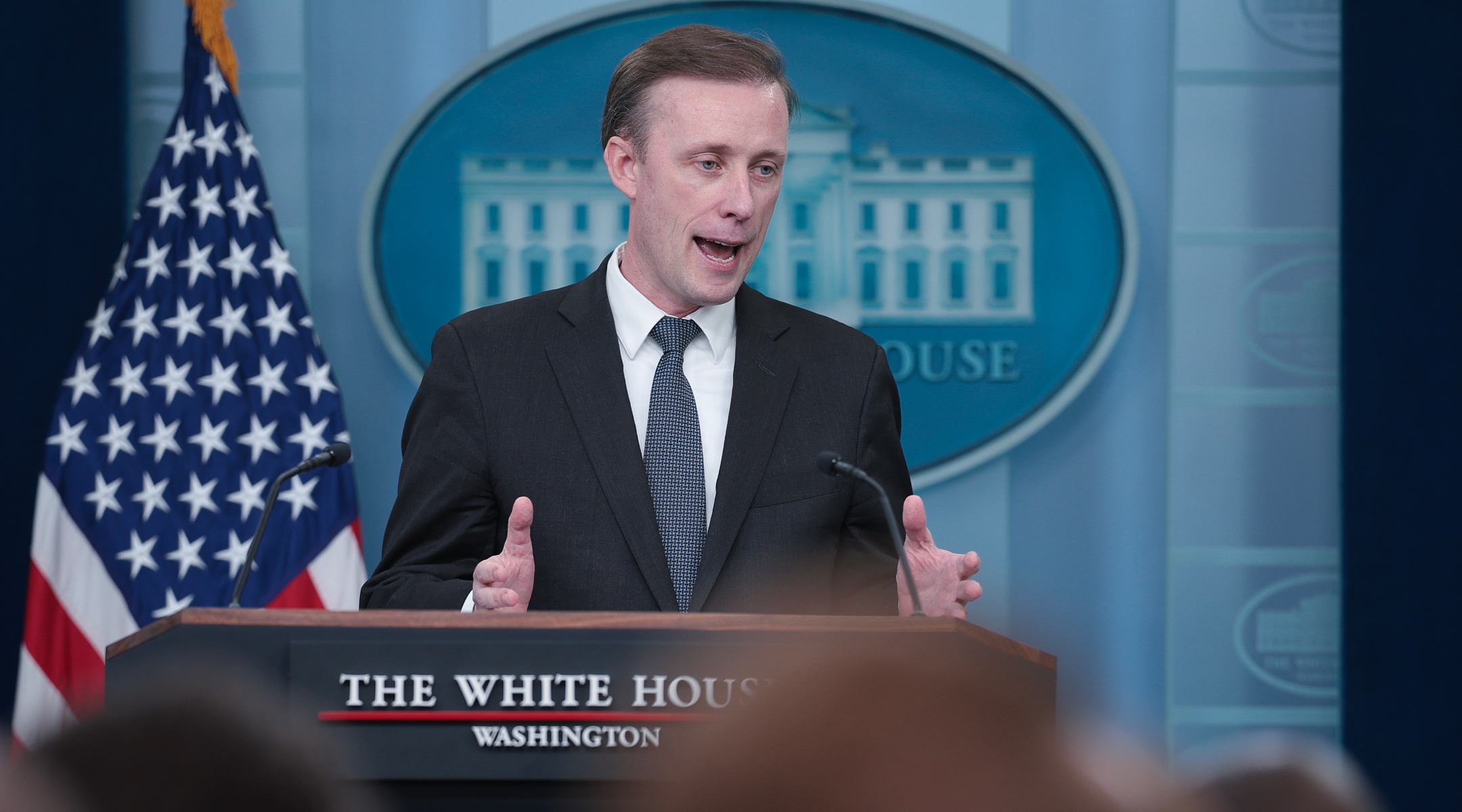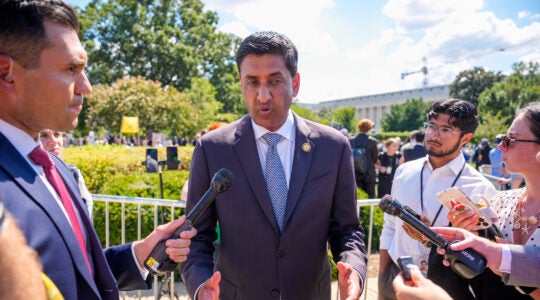Top administration officials under former President Joe Biden are speaking out against Israel’s prosecution of the war in Gaza and criticizing Israeli Prime Minister Benjamin Netanyahu, saying that he sabotaged ceasefire negotiations last year.
The comments in high-profile interviews in Israeli and U.S. media come as Netanyahu has not responded to the latest ceasefire offer from Hamas — and as approval for Israel’s handling of the war in Gaza among Democrats has plummeted to 8%.
The situation in Gaza has transformed since Biden left the presidency, with reports of starvation and nearly 200 journalists killed, many Democratic lawmakers have newly supported legislation to block U.S. arms sales to Israel.
As support for Israel significantly wanes across the Democratic party and beyond, the former Biden administration officials appear to be distancing themselves from the war’s current state and casting their efforts as more critical of Israel than was publicly visible at the time.
Matthew Miller: Biden administration didn’t publicly accuse Netanyahu of sabotaging ceasefire despite strong sentiment
Matthew Miller, the State Department spokesperson under Biden, told an Israeli news channel last week that the Biden administration repeatedly considered publicly announcing that Netanyahu was hindering a ceasefire deal, but decided against it for fear of emboldening Hamas.
“There were times that we very much wanted to go public and make clear that we thought the prime minister was being completely intransigent and making it tougher to get a deal,” Miller told journalists with “The Source,” on Israel’s Channel 13.
“But we discussed it amongst ourselves, and we made the decision that it wouldn’t accomplish anything, [because] we had seen it in a number of cases: [Hamas’ Yahya] Sinwar pulled back from negotiations when he thought there was division between the United States and Israel,” Miller continued. “We wanted to speak very toughly to the government of Israel behind closed doors, but ultimately not do anything that we thought would make it harder to get to a deal.”
It was the first on-camera admission of what other reports have indicated, that Netanyahu was the ultimate obstacle to ceasefires during the war.
In one example cited by Miller, he told Channel 13 that the secretary of state had told Netanyahu that he was “making it impossible to realize the dream that the State of Israel has had since its founding,” adding that Israel would be “bogged down here fighting this war for years and decades to come.”
Netanyahu allegedly replied: “You’re right. We are going to be fighting this war for decades to come. That’s the way it’s been. That’s the way it’s going to be.”
Former National Security Advisor Jake Sullivan says arms embargo now represents ‘totally credible’ position
In an interview Wednesday with The Bulwark host Tim Miller, former U.S. National Security Advisor Jake Sullivan said that he had told members of Congress that blocking arms to Israel had become a “totally credible position.”
As a top advisor to Biden, Sullivan frequently met with Israeli officials to discuss the prosecution of the war in Gaza and humanitarian efforts in the region. Just weeks into the war in Gaza, Sullivan defended Israel’s “right to defend itself against terrorist attacks,” and also said that the United States would work with Israel to ensure “Palestinians get access to those basic necessities.”
In January, before leaving office following President Donald Trump’s reelection, Sullivan said the Biden administration was “close to a deal” and touted the administration’s policy in the Middle East over the previous four years, telling reporters, “We’ve stood in defense of our friends, and we’ve stood up to our enemies.”
“I have, in fact, told a number of members who were thinking about the votes on these resolutions that the situation as it stands today, following the breakdown of the ceasefire in March, means that a vote to withhold weapons from Israel is a totally credible position,” Sullivan told Miller.
Sullivan’s comments come one day after the Democratic National Committee blocked a resolution that would have called for halting arms sales to Israel.
“The case for withholding weapons from Israel today is much stronger than it was one year ago,” Sullivan said. “One, they don’t face the same regional threats. Two, there was a ceasefire hostage deal in place and the ability to have negotiations, and it was Israel who just walked away from it without negotiating seriously. Three, there is a full-blown famine in Gaza. And four, there are no more serious military objectives to achieve. It’s just bombing the rubble into rubble.”
Jacob Lew: Biden administration prevented humanitarian crisis and demanded answers from Israel
Another top Biden administration official, Jacob Lew, who was the U.S. ambassador to Israel from 2023 to 2025, has been pressing the case that U.S. intervention was preventing the humanitarian crisis now underway in Gaza.
Earlier this month, Lew co-authored a piece in Foreign Affairs with David Satterfield, Biden’s special envoy for humanitarian issues in the region, in which that pair argued that their efforts in the former administration in Gaza had “prevented famine.”
While pro-Palestinian voices have warned of food scarcity and starvation in the enclave throughout the war, under the Trump administration, reports of starvation in the enclave have escalated, with a global hunger monitor declaring a famine in parts of Gaza last week.
In an interview Tuesday with The New Yorker’s Isaac Chotiner, Lew expanded on the Foreign Affairs piece, telling Chotiner that Biden’s “commitment to supporting Israel in a legitimate, just fight was clear, and that had to coexist with pressing them on these humanitarian issues.”
Later in the interview, Chotiner said, “There is a certain point at which the U.S. could choose to stop helping Israel,” to which Lew replied that the administration had “engaged with Israel on military tactics in a very direct way.”
“I’m not saying that everything went the way we would’ve advised, and I’m not saying we didn’t call them in the middle of the night many times saying, What on earth happened just now?” Lew said
When asked to explain what Israel’s answer would be during late-night calls about military advances, Lew said that the administration could “almost never get answers that explained what happened before the story was fully framed in international media.”
“When the facts were fully developed, it turned out that the casualties were much lower, the number of civilians was much lower, and, in many cases, the children were children of Hamas fighters, not children taking cover in places,” continued Lew.
That comment has drawn criticism from those who said Lew was excusing the killing of children in Gaza. When Chotiner pressed him on the point, Lew said, “If you’re in a command-and-control center, that’s different than if it’s a school that’s emptied out and innocent civilians are taking shelter there. If you’re the commander of a Hamas unit and you bring your family to a military site, that’s different.”
Lew also pushed back on the characterization that Netanyahu had not wanted to end the war in Gaza and bring the remaining Israeli hostages back.
“It’s more complicated than that,” said Lew. “I’m not going to question that there was a political dimension to all of this. The reality at the time of all the negotiations was there were always two parties to a negotiation. Hamas was not willing to make the moves that it had to make in order to free hostages, and in order to end the war. It wasn’t just one side.”
JTA has documented Jewish history in real-time for over a century. Keep our journalism strong by joining us in supporting independent, award-winning reporting.






